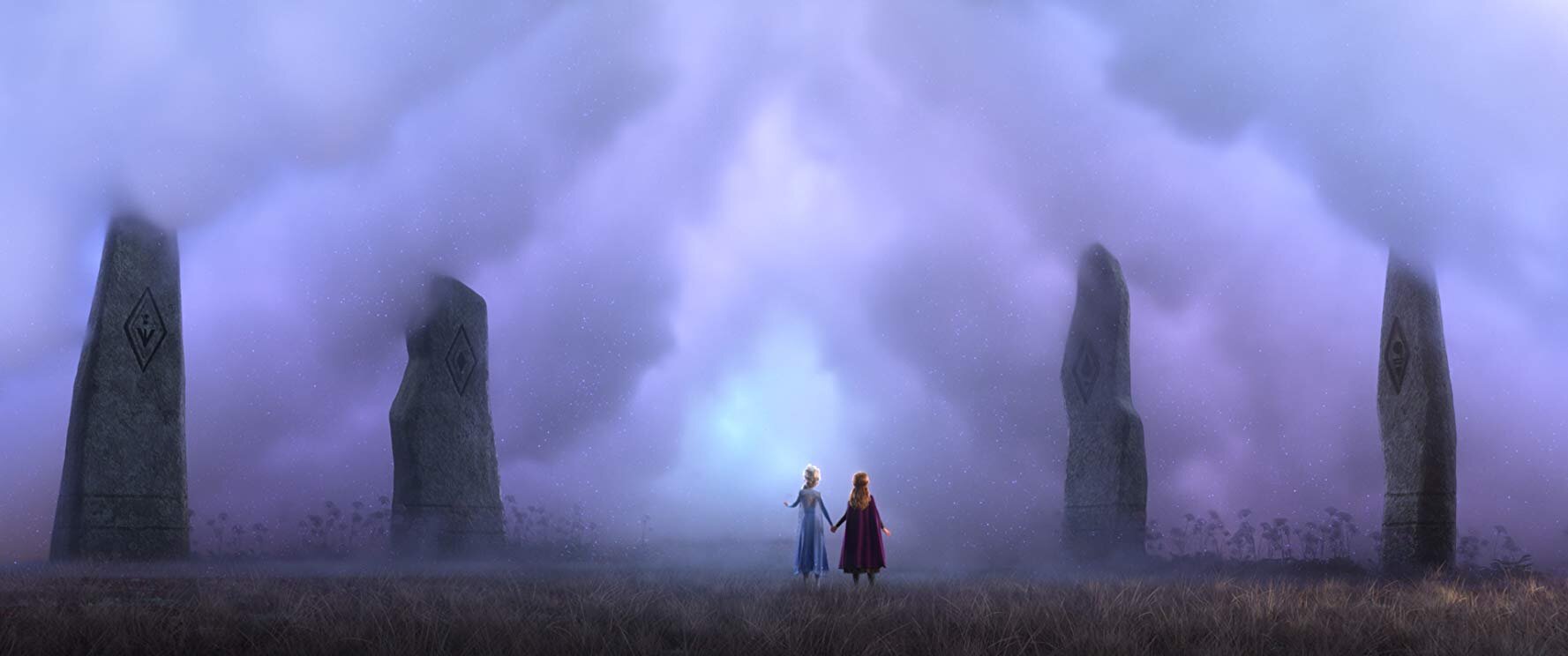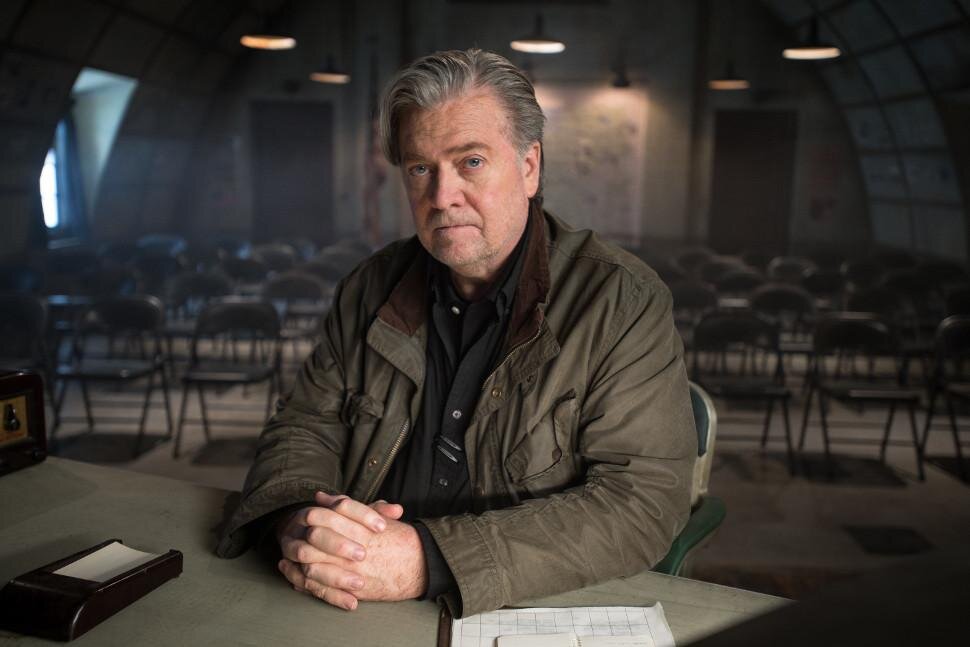Anders' Top 10 Films of 2019
1. Once Upon a Time … in Hollywood (dir. Quentin Tarantino)
Quentin Tarantino has long talked about his concept of the “hangout movie”: a movie about interesting, appealing characters that you just want to watch and spend time with, regardless of the plot. Once Upon a Time … in Hollywood is perhaps his ultimate realization of this concept. One of the pleasures of the film is just spending time with Leonardo DiCaprio’s Rick Dalton, Brad Pitt’s Cliff Booth, and Margot Robbie’s Sharon Tate. But what Tarantino simultaneously captures is a mood and a feeling of lost possibilities and the turning of an era. The looming shadow of the Manson murders—which would rob Tate of her future in reality—casts a darkness over this rich and detailed portrait of sunny Los Angeles. It’s a nostalgic film that is filled with an aching sadness. The fairytale ending that Tarantino delivers here draws its power from our knowledge of how reality turned out. Storytelling becomes magic, the human ability to imagine other possibilities. Here Tarantino uses his love and deep knowledge of mid-century Hollywood to create a moving portrait of Hollywood as a dream factory.
2. Parasite (dir. Bong Joon-ho)
South Korean director Bong Joon-ho delivers a thrilling and entertaining work of popular art with Parasite, and it truly deserves every bit of praise it has garnered. For one thing, it draws wider attention to the cinema of South Korea that has flourished over the last two decades. But Parasite is also a film for our moment of out-of-control economic inequality and growing class consciousness. Rooted firmly in the specificity of South Korean culture, and Seoul in particular, the film invites the viewer into its storyworld, portraying the intertwinedness of two families, one rich, one poor. It’s a twist on the “upstairs, downstairs” comedy of manners, a tale of a complex and thrilling grift, all combined with the most devious of thrillers worthy of Alfred Hitchcock. You will laugh, gasp, and cringe over the course of the film, but in the end you might also be convicted and challenged to confront what it means to live in the world of late capitalism.
3. The Irishman a.k.a. I Heard You Paint Houses (dir. Martin Scorsese)
In part a coda to the earlier gangster films of director Martin Scorsese, The Irishman also casts them in a different light. Telling the story of Frank “The Irishman” Sheeran (Robert DeNiro), a hitman for the Italian mafia and friend and associate of Teamsters union president, Jimmy Hoffa (Al Pacino), it follows Frank’s life over the course of the twentieth century and how his desire to be the “good soldier” leads him to sacrifice his own soul. Its immense runtime lends the film a literal weightiness as it comes to its end and asks questions of spiritual value and about the wages of sin. But I don’t want to suggest that it’s a slog; it’s a sheer pleasure to see legendary actors like De Niro, Pacino (in his first collaboration with Scorsese), and Joe Pesci on screen, in a film that is equal parts funny, suspenseful, and entertaining.
4. Uncut Gems (dir. Josh & Benny Safdie)
It’s almost becoming cliché to say that Uncut Gems is like a two-hour anxiety attack, but it’s a testament to the incredible talent displayed by director brothers Josh and Benny Safdie that they can sustain the energy and mood throughout this story of a Jewish jeweller, Howard Ratner (Adam Sandler), as he takes increasingly risky gambles in pursuit of the rush of financial windfall. The film gives a sense of almost documentary-like realism, using a combination of veteran and first-time actors, some, like NBA legend Kevin Garnett and musician The Weeknd, playing themselves. If it were just pure adrenaline though, Uncut Gems wouldn’t be as good as it is. There’s a pathos and desperation in Sandler’s Howard, as the film asks serious questions about what it means to win in life, and the lengths that the pursuit of money will take us.
5. Ash Is Purest White (dir. Jia Zhangke)
Once again returning to the three-part, three-era structure that he used in his previous film, Mountains May Depart, and even using footage from his earlier film Still Life featuring the Three Gorges dam, Jia Zhangke, one of the masters of contemporary world cinema, chronicles the almost inconceivable changes that China has undergone in the last two decades. Following a young woman, Qiao (played by Jia’s wife and muse Zhao Tao), who ends up in prison when she draws a gun to protect her gangster boyfriend, Bin (Liao Fan), Ash Is Purest White looks at the connection between the social changes in China, and the role that xia, literally the code of conduct, or chivalry, plays in social interactions and the line between those who live inside and outside of the law. It’s a fascinating film as Jia continues to prove himself to be a sharp observer of human behaviour and offers this outsider a glimpse into the world that is modern China.
6. The Lighthouse (dir. Robert Eggers)
What to say about The Lighthouse, a tale of two “wickies” (lighthouse keepers), played by Willem Dafoe and Robert Pattinson, in the late-nineteenth century, who descend into madness on their isolated rock outpost when the weather delays their relief. The film can arguably be described equally as a comedy and a horror film, eliciting bawdy laughs with a overwhelming sense of dread, which portents that this will not end well. It’s tempting to call director Robert Eggers follow-up to The Witch sui generis, but there are elements of David Lynch (particularly Eraserhead), Guy Maddin, the writings of Herman Melville, Edgar Allan Poe, H.P. Lovecraft, Apocalypse Now, and even The Myth of Prometheus in his work. A dizzying and technically dazzling mash-up of all the above, it’s one of the most impressive films of the year.
7. The Beach Bum (dir. Harmony Korine)
I’m as surprised as anyone to find the latest from Harmony Korine on my list of favourite films of the year, but The Beach Bum is not only very funny, but ultimately finds the pathos in its motley crew of characters. The film is a portrait of a hedonistic, burnout poet, Moondog (Matthew McConaughey), a scraggly, insanely fortunate character, as he smokes and parties his way around South Florida on the dime of his wealthy wife (Isla Fisher). Korine revels in the absurdity of it all, and Moondog’s encounters with characters played by Snoop Dogg, Martin Lawrence, Zac Efron, and Jimmy Buffett as himself, are very funny. But on a dime, the film dips into tragedy and pathos. Ultimately, what makes me admire this film is what I wasn’t expecting from a Harmony Korine film: to be moved.
8. (tie) Frozen II (dir. Chris Buck & Jennifer Lee) & Missing Link (dir. Chris Butler)
I’m going to put both of these animated children’s films on here because both represent great examples of how family entertainment can combine technical brilliance (either computer or stop-motion animated), memorable and lovable characters, and a story that asks us to consider the bonds of friendship and family, while at the same time challenging us to think about our relationship to others and our ethical and moral imperatives. Missing Link is the latest from Laika, the stop-motion studio that made Kubo and the Two Strings and Coraline. While not as serious as those films, Missing Link is joyous and manages to deliver an adventure film that warms the heart. Frozen II in my opinion ups the ante on the first film, using the richly-drawn characters to tell a story that moves away from the typical elements of the first to consider our relationship to the sins of the past and the legacy of our ancestors. Both are rare examples of family entertainment that does the most with adventure stories and sequels.
10. American Dharma (dir. Errol Morris)
Errol Morris continues his examination of the men who have shaped American politics in the last century, following up his films, The Fog of War and The Unknown Known, with this interview feature with former Trump advisor and Breitbart editor Steven K. Bannon. I see why people think there's a danger in giving Bannon so much room to maneuver and weave his own myth. He’s not so distant a character like McNamara, and Morris isn’t providing us with any “gotcha” moments, trusting us to see the danger in Bannon’s ideas; but at the same time the film does push back and shows the terrifying logic of Bannon’s ideology, through conversations about classic Hollywood cinema and Bannon’s own role in the creation of our current moment. It’s not for everyone, but this should be like The Battle of Algiers was for the US military in countering Iraqi insurgency: a study in the tactics and motivations of the enemy.
Another 10
Ad Astra (dir. James Gray)
Apollo 11 (dir. Todd Douglas Miller)
High Flying Bird (dir. Steven Soderbergh)
The Hottest August (dir. Brett Story)
The Last Black Man in San Francisco (dir. Joe Talbot)
Rolling Thunder Revue: A Bob Dylan Story By Martin Scorsese (dir. Martin Scorsese)
Star Wars: The Rise of Skywalker (dir. J.J. Abrams)
Toy Story 4 (dir. Josh Cooley)
Under the Silver Lake (dir. David Robert Mitchell)
Us (dir. Jordan Peele)












The brothers discuss how Avatar: Fire and Ash functions as a planetary romance, Cameron’s use of repetition, and the film’s themes and character development.